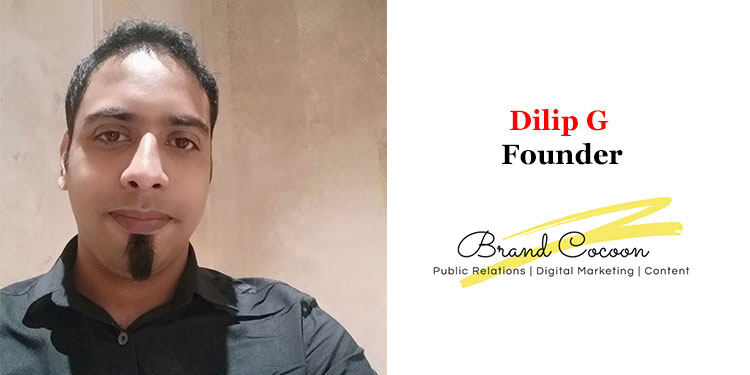Start-ups across sectors have been leveraging technology in a bid to onboard clients and expand across geographies. Be it in the ed-tech space that offers the convenience of knowledge at the confines of one’s home to accessing critical health-parameters through e-ICUs by some innovative health-tech start-ups. Going by the NASSCOM & Zinnov latest report, the Indian tech-start-up ecosystem alone added 1,600 new companies in 2020; which translates to a steady growth of 8-10 percent, despite COVID-19.
So, the question here is, how can brand managers understand the pressing challenges of a start-up and help create a unique persona givensuch alarming numbers and establish credentials for every company set-up? What does this mean for the publicist on-board? Where does the communication strategy fit-in amidst other pressing issues such as achieving scale and raising funds?
It is here when the publicists’ knowledge of a start-up’s ecosystem comes handy. The publicist on-board needs to be adept at understanding the business model, the stakeholders in the brands’ ecosystem and factors that drive revenue for its clients. An in-depth perspective will aid in developing effective story angles for the start-ups and help form effective collaborations with relevant influencers.
Here are key terminologies and aspectsa brand manager needs to consider while implementing effective ROI based communications campaigns for Startups’:
Understanding Unit of Economics over Technicality of a product: While the product may be innovative as a concept, what neds to be taken into consideration is the unit economics to gauge business viability. In a nutshella effective brand-communicator needs to understand the direct revenues and costs associated with a business model. The recurring revenues is a key indication to build a solid financial block.Once the communications partner is equipped with this information, effective PR tools can be leveraged to generate news in forms of media interviews, thought leadership articles, press releases in addition to pitching for product reviews where applicable.
The scope of creating additional revenue streams:While a product may be introduced to cater to a specific need, the wisdom of a brand manager needs to shine through in ideating story angles for different target groups. For example, while a high-pressure washer is primarily catered to automobile enthusiasts, an effective communicator needs to work on story ideas that will influence other sectors to purchase them; such as the construction sector and large establishments such as resorts where cleaning is a herculin task.
Help Adopt a Local Mindset:Brand managers need to leverage their insights to help start-ups on developing a local mindset. This rings true especially when the company is looking at expanding to newer geographies that represent a cult of culturally & economically different population.
Staying invested in the long run: It is a common practice, especially among early stage start-ups to raise angel fund by a cluster of investors who’d exit the partnership after a funding announcement has been made. However, if scale and brand recall has to be achieved, the publicist on board should help with reaching out to the right network, help establish a strong communication strategy and get the right branding expert on board.
Implementing effective communication strategies: This is undeniably the most important addition to the above. With a brand having multiple stakeholders, effective communication channels such as public relations, social and influencer campaigns need to be implemented to garner attention of every stakeholder within the brands’ ecosystem.
To conclude, with the Indian start-up ecosystem gaining traction, the success of building the future of the Nation’s economy is at a crucial junction. While entrepreneurs need to be encouraged to solve pressing needs through their start-ups& VCs, the brand managers will have to assume the role of strategic communications-consultants to help propel the growth.
Authored by Dilip G, Founder, Brand Cocoon.
















